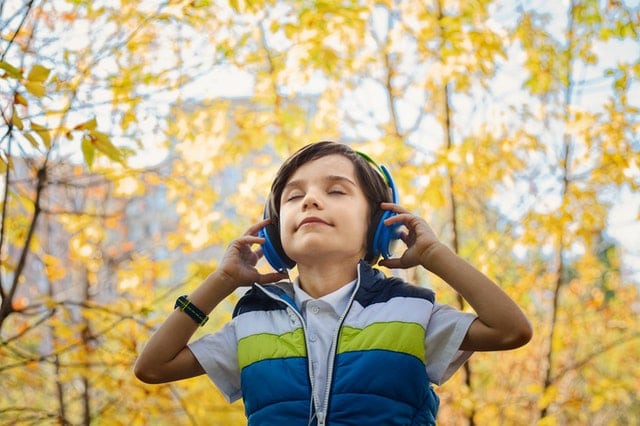With school moving to an online format and stay-at-home orders in place, family members may find themselves seeking out their own listening spaces within an otherwise crowded house. Many achieve this by wearing headphones for multiple hours a day. While this may help keep the peace, it can be damaging to your children’s ears.
Headphones Dangers

Without putting proper safety measures in place, children can damage their hearing from the constant use of headphones. This can lead to communication difficulties, tinnitus, aural fullness, sensitivity and ear pain.
There are a number of headphones designed specifically for kids on the market that cap the decibel level to 85. But experts agree this may not be as helpful as you’d think.
According to Dr. Rick Neitzel, an associate professor of environmental health sciences at the University of Michigan, “Exposure is not just intensity — it is also how long it lasts and how frequently it occurs.” He points out “Ignoring the time is missing the point. This 85-decibel number has achieved mythical status not because it is safe but because it is one of the few ways that occupational noise is regulated.”
Some of these headphones are marketed as having a long battery life and comfortable ear pads. But making it easier for children to listen all day can be damaging.
Are There Safer Options?
There is no simple solution.
One option is to decrease the decibel level from 85 to 70. This allows for an unlimited amount of listening.
While limiting the volume of music played through headphones is helpful, it is important to note that it is unlikely that this is the only sound your child will experience in their day. Noise exposure is cumulative. Activities such as playing an instrument, mowing the lawn and even vacuuming the house exposures your child to additional levels of noise.
In addition, your susceptibility to damage varies by individuals. While one child may be perfectly safe when exposed to music, others may experience ear damage at the same volume.
Have You Experienced Damage?
Unfortunately, it is hard to tell if you are experiencing hearing loss until it is too late. Hearing loss does not make sounds softer; it makes communication more challenging. You will have trouble understanding, speech will sound muffled and music will seem dull. Conversations that were once easy will now feel frustrating.
In addition to hearing loss, loud noises can cause:
- Tinnitus
- Hyperacusis
- Aural fullness
How to Make Listening Safer
You should check the volume on your child’s device periodically and activate the parental controls. If you can hear sounds leaking from the headphones or your children do not hear you when you speak to them, the music is too loud.
Noise canceling headphones are able to block out background noise, ensuring your child can listen to music at a safer volume.
You should also have your child’s hearing tested every three years. Have them tested sooner if your child says “what” too often.
To learn more about protecting your child’s hearing, contact the hearing experts at Aaron’s Hearing Aid & Audiology Center today.
